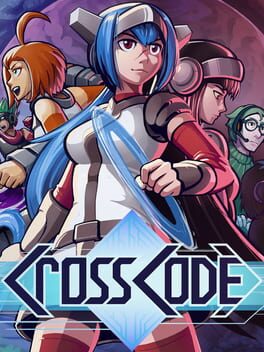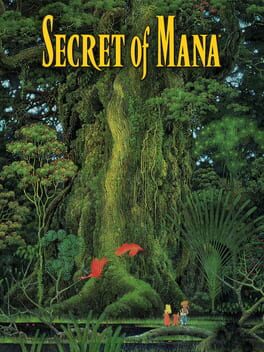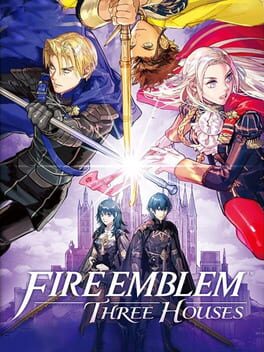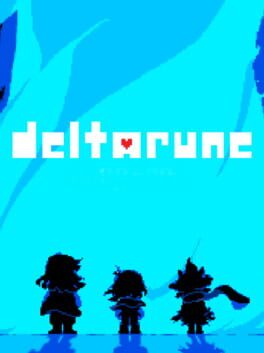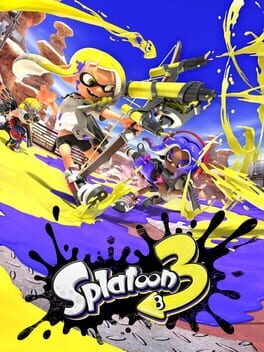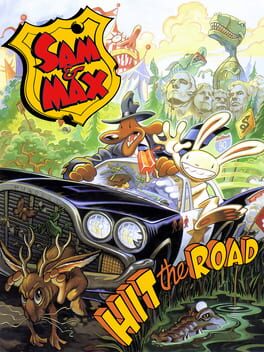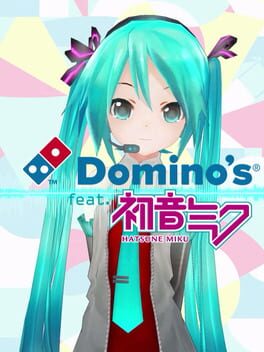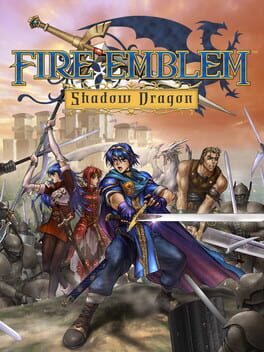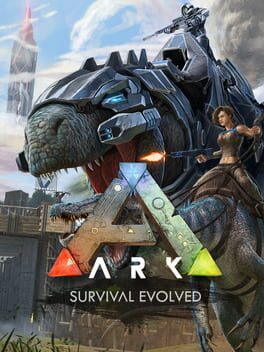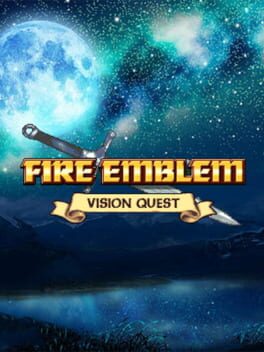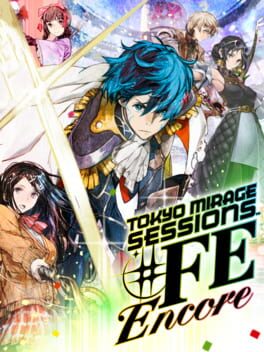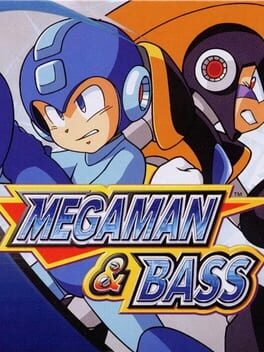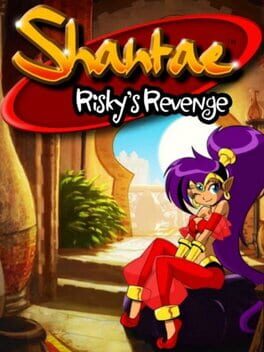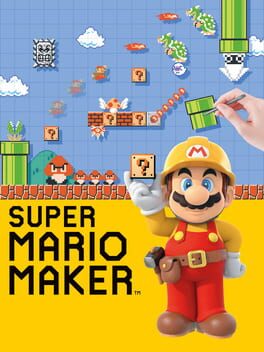Baird
2018
The video game that is hyper-aware of its role as a video game is a pretty well explored trope at this point, although a lot of that exploration boils down to shallow references to game culture and design. “Ooh that quest you played sure sucked right, also remember Zelda?”. After a quick laugh, I’m left wondering what the point of echoing other games like this is. This is hardly an exclusive brand of humor to people making their own games either, as seen in the eternal presence of webcomics making Mario mushroom drug jokes. So, why is this such a common thing to see in online communities, anyways?
I could just chalk it up to gamers not being funny and spamming the easiest ways to get a quick laugh like it’s a PK FIRE (you may exhale manually). I probably should, honestly. But on some level, the core drive behind this sort of humor is to play with our perceptions of games, right? Whether it’s injecting the standards of the real world into a video game setting, or just poke fun at the annoyances we recognize as a part of escort missions, even when no part of the game will ever remember how obnoxious we thought they were. There's this common link of thinking about the way people interact with games, separate from a game's own canon.
CrossCode plays with this connection in such a fascinating way that it's definitely a massive disservice that I'm somehow implying it's the final form of gamer humor. Although there is a boss called Sephisloth in it.
The central premise is that the game takes place in a virtual reality MMO, with the exception that the game does take place in a physical space. And this game (which I will be calling its ingame name of CrossWorlds), is such a blatantly gamey video game that it almost hurts. It is undoubtedly an ode to the Skinner Box design of grinding through satisfying combat to get the experience points and gear drops necessary to have high enough numbers for the game’s Zelda dungeons. While those dungeons are an enjoyable enough set of puzzles, the dungeons themselves are quite linear and lack the art of traversal through confusing spaces that fuels the best in Zelda. The story is a rather aimless McGuffin hunt that even has its own generic Kirby lore guff, complete with the staple of “who cares” lore: The Ancients. The name of the space you play in is pretty apt: the Playground. It’s a very plastic experience that resists any meaning beyond “I like playing this”.
While CrossWorlds intentionally lacks a story with much of anything, CrossCode as a game enhances this experience with the people you meet along the way. You form parties with a couple of characters also playing the game, and it’s pretty clear they’re just regular gamers. The French girl who talks about her struggles with homework, the mage guy whose biology facts would definitely warrant a slew of nerd emoji gifs, your sort of rival who’s just kinda mad you cheated and brought dishonor to the class he mains, I buy that these are gamers that could exist. And they do a lot to make CrossWorlds far more memorable than it otherwise would be. The Zelda dungeons being pretty simple makes a lot more sense when you and the French girl have an ongoing race to see who can beat each dungeon first. I certainly wouldn’t want to try and blaze through something like the Water Temple. And I’ll remember the experience of my character confidently exclaiming “Lea wait [at the end]” only to come in last place with all the hubris of Respect Your Elders before I recall the solution to whatever ricochet the bullets puzzle I had to solve. Playing with them transforms CrossWorlds from simply being the game itself into a chance to chill out with some pleasant characters. CrossCode uses both its real and fictional spaces to explore the experience of playing a video game, of the value of what one and their friends bring to a game by playing together, hanging out, and maybe even having a couple dumb gamer in-jokes. Also I like how when you add them to your party it’s like pinging them Discord to join your game, that’s a nice touch.
If this were all that CrossCode was, it would be a great time for this band of fictional gamers, but the main protagonist, Lea, doesn’t get the luxury of having a clean divide between the game and reality. We only see her as an avatar ingame, as when she logs off, instead of just getting to live real life like anyone else, she dreams about her memories. She has an amnesia plot going on, but by experiencing more of CrossWorlds, she begins to recall more memories, so it's clear that for her this is more than just a game. Even in the intro, some player character is out to get her, so there is always this looming threat to her wellbeing.
There's also the part where due to a module issue, she's unable to talk. She communicates mainly through body language, and eventually a couple key words get hard coded in, like "Hi!", hence the "Lea wait" thing I talked about before. The facial expressions put in a lot of work to make her an extremely expressive character. Even with her limitations, she's open to meeting new people and making the most of her time in CrossWorlds. While her friendship sometimes gets strained by her inability to communicate, and there are points where her being stuck in the game can feel isolating, she and her friends care too much about each other for those stresses to be permanent. Even beyond being a novel twist on the silent protagonist trope, she's probably one of my favorite game protagonists.
All in all, CrossCode is a game that wraps a rather fun Zeldalike experience with an engaging story running in parallel to the usual process of clearing quests and making combo chains. This game creates a pretty well realized video game setting, but understands that the process of playing through that game, the people you meet along the way, and the experience you get out of it all mean more than that simple gameplay loop ever could on its own. It’s brimming with passion for the medium, and crafts a great story all about that passion.
I could just chalk it up to gamers not being funny and spamming the easiest ways to get a quick laugh like it’s a PK FIRE (you may exhale manually). I probably should, honestly. But on some level, the core drive behind this sort of humor is to play with our perceptions of games, right? Whether it’s injecting the standards of the real world into a video game setting, or just poke fun at the annoyances we recognize as a part of escort missions, even when no part of the game will ever remember how obnoxious we thought they were. There's this common link of thinking about the way people interact with games, separate from a game's own canon.
CrossCode plays with this connection in such a fascinating way that it's definitely a massive disservice that I'm somehow implying it's the final form of gamer humor. Although there is a boss called Sephisloth in it.
The central premise is that the game takes place in a virtual reality MMO, with the exception that the game does take place in a physical space. And this game (which I will be calling its ingame name of CrossWorlds), is such a blatantly gamey video game that it almost hurts. It is undoubtedly an ode to the Skinner Box design of grinding through satisfying combat to get the experience points and gear drops necessary to have high enough numbers for the game’s Zelda dungeons. While those dungeons are an enjoyable enough set of puzzles, the dungeons themselves are quite linear and lack the art of traversal through confusing spaces that fuels the best in Zelda. The story is a rather aimless McGuffin hunt that even has its own generic Kirby lore guff, complete with the staple of “who cares” lore: The Ancients. The name of the space you play in is pretty apt: the Playground. It’s a very plastic experience that resists any meaning beyond “I like playing this”.
While CrossWorlds intentionally lacks a story with much of anything, CrossCode as a game enhances this experience with the people you meet along the way. You form parties with a couple of characters also playing the game, and it’s pretty clear they’re just regular gamers. The French girl who talks about her struggles with homework, the mage guy whose biology facts would definitely warrant a slew of nerd emoji gifs, your sort of rival who’s just kinda mad you cheated and brought dishonor to the class he mains, I buy that these are gamers that could exist. And they do a lot to make CrossWorlds far more memorable than it otherwise would be. The Zelda dungeons being pretty simple makes a lot more sense when you and the French girl have an ongoing race to see who can beat each dungeon first. I certainly wouldn’t want to try and blaze through something like the Water Temple. And I’ll remember the experience of my character confidently exclaiming “Lea wait [at the end]” only to come in last place with all the hubris of Respect Your Elders before I recall the solution to whatever ricochet the bullets puzzle I had to solve. Playing with them transforms CrossWorlds from simply being the game itself into a chance to chill out with some pleasant characters. CrossCode uses both its real and fictional spaces to explore the experience of playing a video game, of the value of what one and their friends bring to a game by playing together, hanging out, and maybe even having a couple dumb gamer in-jokes. Also I like how when you add them to your party it’s like pinging them Discord to join your game, that’s a nice touch.
If this were all that CrossCode was, it would be a great time for this band of fictional gamers, but the main protagonist, Lea, doesn’t get the luxury of having a clean divide between the game and reality. We only see her as an avatar ingame, as when she logs off, instead of just getting to live real life like anyone else, she dreams about her memories. She has an amnesia plot going on, but by experiencing more of CrossWorlds, she begins to recall more memories, so it's clear that for her this is more than just a game. Even in the intro, some player character is out to get her, so there is always this looming threat to her wellbeing.
There's also the part where due to a module issue, she's unable to talk. She communicates mainly through body language, and eventually a couple key words get hard coded in, like "Hi!", hence the "Lea wait" thing I talked about before. The facial expressions put in a lot of work to make her an extremely expressive character. Even with her limitations, she's open to meeting new people and making the most of her time in CrossWorlds. While her friendship sometimes gets strained by her inability to communicate, and there are points where her being stuck in the game can feel isolating, she and her friends care too much about each other for those stresses to be permanent. Even beyond being a novel twist on the silent protagonist trope, she's probably one of my favorite game protagonists.
All in all, CrossCode is a game that wraps a rather fun Zeldalike experience with an engaging story running in parallel to the usual process of clearing quests and making combo chains. This game creates a pretty well realized video game setting, but understands that the process of playing through that game, the people you meet along the way, and the experience you get out of it all mean more than that simple gameplay loop ever could on its own. It’s brimming with passion for the medium, and crafts a great story all about that passion.
1993
Played this on Parsec with friends but we kept losing the save file and having to start from scratch. Pretty offputting beyond the usual task of replaying the same stuff again because having to redo that first boss would be a modern day Sisyphean tale.
Actually, we beat that boss on our first try the first time around. We're just such pro gamers like that.
Actually, we beat that boss on our first try the first time around. We're just such pro gamers like that.
I never want to play this game again and every time I see people arguing about it I actively regret ever associating with the fanbase just a bit.
The first playthrough was pretty fun, though. The world is pretty intriguing until you realize that what you saw on your first run was basically exactly what you get for the rest of them. I like the overall cast a lot, mainly the Golden Deer, even though Marianne as a character has been permanently ruined for me by weebs on one of those meme subs.
Overall it's kind of a weird game to rate because it feels like it's both deserving and undeserving of its accolades if that makes any sense. But I appreciate the scope so whatever. I would have liked it more anyways if I didn't cram 2.5 playthroughs in expecting they'd actually do something interesting with the multiple perspectives.
The first playthrough was pretty fun, though. The world is pretty intriguing until you realize that what you saw on your first run was basically exactly what you get for the rest of them. I like the overall cast a lot, mainly the Golden Deer, even though Marianne as a character has been permanently ruined for me by weebs on one of those meme subs.
Overall it's kind of a weird game to rate because it feels like it's both deserving and undeserving of its accolades if that makes any sense. But I appreciate the scope so whatever. I would have liked it more anyways if I didn't cram 2.5 playthroughs in expecting they'd actually do something interesting with the multiple perspectives.
TBD
2022
This review contains spoilers
What does Mario Kart 8 really bring to the Mario Kart series? Sure, there’s the antigravity, but in the moment it just feels like the turns get looser and you pick up speed from hitting other players. It’s still a race, though, complete with a very typical set of items and a set of courses whose main strength is more in the fleshed out aesthetic than being outright genius racetracks. The only other things to try that weren’t already baked into the franchise’s identity are a neat little replay mode and the obnoxiously finicky 200cc. In the end, it’s a game where I can’t think of anything too spectacular it does compared to the other Mario Karts, yet on some level I would still claim it was the best in the franchise.
While this hardly feels like anything most Nintendo fans would consider against the game, the way a lot of multiplayer Nintendo franchises tend to stagnate reminded me of a very recent case, and I bet you’ll never guess which one it was. Splatoon 3’s hype cycle was plain bizarre, with the game going on such radio silence after its announcement that we only learned you could use a cool sword class a month before the game came out. Within those dead zones of discussion, you saw lots of people talking about how the game seemed unnecessary as a sequel and wasn’t going to do anything to push the series forward. While most of it was pretty inane, particularly the “Splatoon 2 DLC” nonsense I’ll definitely touch on later, I, as a Splatoon fan, still felt like the game had something to prove. That there would be some new mode or storyline hidden for so long that could justify Splatoon 3’s spot as the third game.
And, well, that didn’t really happen. Unless you were hyped for that throwaway card game, but I never was and I don’t think anyone else was either. Overall, it really is, on some level, just more Splatoon. More weapons, more maps, more Salmon Run bosses, two neat movement mechanics, it’s not a game changer but still pretty enjoyable. For the record, this is why the “Splatoon 2 DLC” thing is a non argument. Why would they put this much effort into expanding the existing modes without much new behind it, and then sell that as DLC to a 5 year old game instead of making a new one? Not to mention that some content like Ink Armor was completely axed (ripbozo you won’t be missed), which doesn’t make sense as an add-on for an existing game. The whole game aims to have a much faster pace than its immediate predecessor, which is welcome, although it definitely feels more like polishing the existing experience in lieu of offering much of any new content.
One major benefit to Splatoon 3’s approach to polishing what already works is moreso in the surrounding user experience. After 7 years, you can skip the news, but there’s plenty more besides that. The lobby contains the full-fledged practice grounds you used to find in the weapons shop/equip menu (there’s a smaller one in those places), and you can mess around while waiting for your battles to start instead of looking at a static menu. The money economy is better thought out, with the urge to buy lots of trinkets to customize your locker, and also adding slots to your gear, serving as the game’s money sinks. No longer will you just have a useless lump of cash after getting all the weapons and clothes. Matching up with friends is actually doable, and playing together adds a lot to the game. There’s a lot of little details here that all add up. Shame about the connection though!
Although on the topic of money sinks, there’s something that’s been bothering me. In the lobby, there’s a little machine where you can spend money to get random stuff, like ability chunks or new titles and decorations. This gacha framing is honestly pretty gross, especially as it heavily discounts the first play of the day to encourage logging on every day like it’s a mobile game. Salmon Run does something similar, as the fancy boss will only appear rarely, but there’s a meter that increases your chances, so you’re encouraged to stick around and engage with the game longer than you’d like just to access the boss fight before the next shift happens and the meter resets. Kirby and the Forgotten Land had a very similar thing with its figurine collectibles, and on top of that even had advertisements for free-to-play grifts like Kirby Clash. It’s a very subtle normalization of scummy gaming practices in $60 Nintendo titles and I don’t like it. It may seem benign now, but gaming industry bullshit like this only ever gets worse. Between this and Nintendo’s mobile affairs, I wouldn’t be surprised if some big name titles on the Switch 2 had bonafide microtransactions. Well, there’s already Smash Bros with its Mii Costumes. And Fire Emblem’s extra maps, one of which in Fates included critical story details shown nowhere else in its three main games. We’re already there, I guess. Still excited for the Pearl and Marina wedding DLC expansion though!
Getting back on track, besides the minor gameplay tweaks made to smooth over the experience for diehard fans, I also adore the setting. The Splatlands convey a unique feeling of the game’s self proclaimed chaos theme, having some grit to it while still carrying the laid back but self-assuredly cool vibes that the Splatoon characters normally bring. The members of Deep Cut are also a nice colorful band of characters. Although, as a result of the news being skippable, their dialogue becomes very generic (not that I’d read it anyways), but they still have a solid host chemistry. I can’t really pick out a favorite, unlike in the previous games where I would choose whoever in the news had the best lines in the eternal battle of wits I had to stare at while mashing the A button. They make up for it in the campaign, serving as sort of rivals with boss fights that feel like a breath of fresh air compared to the non-DLC Splatoon 2 campaign. I’m saving my thoughts on the story for after the conclusion as they are extremely spoiler heavy, but I will say that the gameplay overall served as a fun second pass on the Octo Expansion design formula, albeit a bit less interesting.
In a vacuum, Splatoon 3 is a game I have trouble parsing. It’s undoubtedly the biggest and baddest Splatoon game to date, and will definitely be enough to satisfy long term Splatoon fans, myself included. But I’m left wondering if this is all Splatoon has to offer. The same core experience I played back on the Wii U, just with some extra stuff to be interesting enough to convince me to get back into some ceaseless Splatoon cycle.
Although maybe it was foolish to expect more than that. At the beginning of this review, I compared Splatoon to Mario Kart as two of Nintendo’s massive multiplayer series. That’s the thing: Splatoon really is big enough nowadays to strike in the big leagues with the likes of Mario Party, Mario Kart, and Smash Bros, or at least play in the same ballpark. A day after the game came out, I remember someone shared on Discord a tweet of someone pointing out that Splatoon 3 had already outsold Paper Mario: The Origami King. The comments section could hardly believe it, feeling bad for the modern Paper Mario installment or trying to point to the fandom backlash/arguably inferior mechanics as a possible cause for the game to not do as well. Very few of them seemed to recognize that this comparison was never even fair to begin with- that one of Nintendo’s multiplayer monoliths would steamroll a singleplayer RPG in terms of sales. Online communities in general seem to massively underrate the general appeal of Splatoon.
I suppose part of it is that compared to Nintendo’s other tentpole multiplayer outings, it’s not as entrenched in Nintendo culture. The games I’ve compared to Splatoon are so much older than it that most of the people in online circles already take them for granted. There are so many bold decisions these games made before my time that I can only recount them secondhand. Super Mario Kart fleshed out the Mario franchise’s world in a way no game ever had to before, to the point where it was the first game where you could play as Bowser. Super Smash Bros, in its time, was a flash in the pan that seemed near impossible to ever get greenlit, yet it started a franchise that would be immortalized as a cornerstone of gaming and sparked a whole subgenre of fighting games. Mario Party did a bit of trolling and got Nintendo sued. But nowadays, none of that matters when you’re just starting a quick round of Smash with your friends. The revolutions in the industry these games made have faded with time, until they’ve simply become the industry as many people have always known it. The difference with Splatoon is that I and many others were there to see, and still remember, the impact it had on modern Nintendo.
Splatoon, when it was first revealed, seemed like a game that was antithetical to the very nature of Nintendo. This game explored the final frontier for the company: the shooter. Here was a genre that was an easy dunk on the Wii during the console wars, as the console basically never appealed to fans of an emerging genre that thrived on rival devices. But Nintendo was there pushing Splatoon with all the confidence and buzz they would reserve for their biggest games. This also meant they were creating a brand new IP at a time where they were so starved for series that the two most recent Nintendo series that were inducted into the lineup of Smash 4 were Xenoblade, which at this point was two niche games, and Wii Fit. But Splatoon burst onto the scene with an interesting world, fun and fluid (sorry) mechanics, and a take on the shooter genre that not just stood out, but felt right at home within the Nintendo catalog. It’s no wonder the Inklings were one of the most requested DLC characters in that Smash 4 poll, after the usual band of Scrimblos we gaslight ourselves into thinking are the highest priority to add to Smash.
But 7 years as a core Nintendo property changes a lot about Splatoon. With tens of millions of copies sold and two games on the Switch, saying Splatoon is “antithetical” to Nintendo nowadays feels silly. Most of that subversive aura has been subsumed into the wider Nintendo culture by now, and it now, it’s just another property hanging out to be sold by the company. There will be a new Splatoon, just like how there will be a new Smash Bros and a new Pokemon anda new Mario Kart a new port of Mario Kart 8. This was inevitable, and I’m not trying to paint this as a fall from grace or anything, that would be naive. But there definitely is something disappointing about expecting so much more from this franchise than just another Splatoon. I really thought they had it in them to expand the series into something absolutely incredible this time around, but Splatoon 3 seems to be the point where the games are settling into a comfy routine, given that it hardly had to do much to distinguish itself from its fellow Switch installment. Splatoon as a series no longer needs to break boundaries; it now is the boundary.
Alright, so the main review is over, but I did say I would cover the story in greater detail. I am going to discuss everything about the story, from the lore to the final boss. If you don’t want to be spoiled on any of this stuff, then thanks for reading, smash that heart button, and toodles.
3
2
1
Here we go.
I hate the mind crystals.
That’s their big lore reveal. Essentially, the humans had these crystals in that Alterna that absorbed their memory and cast a fake sky, and then after they died some of the crystals transmitted those memories to the sea life in the water, and that’s how Inklings and the like developed. It feels like the lore at this point has no place left to go, choking on itself like a rootbound plant and removing most of the intrigue in the series in order to tie as many loose ends together in the blandest way possible. I thought the general nature of Splatoon was more poignant when life found its own way, tangentially inspired by the long dead humans. Now they’re sort of the last bastion of humanity’s desires in a way, which I don’t like. But we had to have an answer for how the Inklings evolved so there you go. Even though there’s no way around the fact that they can’t explain how marine mammals specifically all died besides the fact a video game story had to happen. (yes all the marine mammals died too, the narwhal landlord thing is pure creativity liberty on behalf of treehouse)
Speaking of giving the most generic and unsatisfying answer possible to a lore question, Mr. Grizz! He sure is a space bear, but there’s nothing I could really add here that isn’t parroting rassicas in their video speculating about Mr. Grizz’s identity during Splatoon 2. The main thing they said that I liked is that this bear thing is a dead end that can’t really say anything about Inkling society, as because he is an outsider to their culture, the routine exploitation of Salmonids doesn’t work as well as an indictment of the Inklings anymore. I will say that he’s such a boring villain too. I can’t take him seriously when most of his quotes are business themed non-sequiturs, when he doesn’t even talk like that during Salmon Run or the rest of the singleplayer. His entire motivation is just Commander Tartar’s again, but less interesting as he doesn’t have any particular hatred of the Inkling/Octoling lifestyle like Tartar did, it’s just “mammals good, sea creatures bad”. Plus, I don’t think “remnant of the human era tries to revert the world to a humanlike state via plot goop” is a story that could ever work twice, it doesn’t sit right rehashing it as though it’s DJ Octavio stealing a big fish. It’s another way that Splatoon 3 rests on its laurels, giving us the same plot as before, with the continued focus on the lore now coming at the expense of anything interesting happening in the wider plot.
That’s about all I wanted to say on the matter.
While this hardly feels like anything most Nintendo fans would consider against the game, the way a lot of multiplayer Nintendo franchises tend to stagnate reminded me of a very recent case, and I bet you’ll never guess which one it was. Splatoon 3’s hype cycle was plain bizarre, with the game going on such radio silence after its announcement that we only learned you could use a cool sword class a month before the game came out. Within those dead zones of discussion, you saw lots of people talking about how the game seemed unnecessary as a sequel and wasn’t going to do anything to push the series forward. While most of it was pretty inane, particularly the “Splatoon 2 DLC” nonsense I’ll definitely touch on later, I, as a Splatoon fan, still felt like the game had something to prove. That there would be some new mode or storyline hidden for so long that could justify Splatoon 3’s spot as the third game.
And, well, that didn’t really happen. Unless you were hyped for that throwaway card game, but I never was and I don’t think anyone else was either. Overall, it really is, on some level, just more Splatoon. More weapons, more maps, more Salmon Run bosses, two neat movement mechanics, it’s not a game changer but still pretty enjoyable. For the record, this is why the “Splatoon 2 DLC” thing is a non argument. Why would they put this much effort into expanding the existing modes without much new behind it, and then sell that as DLC to a 5 year old game instead of making a new one? Not to mention that some content like Ink Armor was completely axed (ripbozo you won’t be missed), which doesn’t make sense as an add-on for an existing game. The whole game aims to have a much faster pace than its immediate predecessor, which is welcome, although it definitely feels more like polishing the existing experience in lieu of offering much of any new content.
One major benefit to Splatoon 3’s approach to polishing what already works is moreso in the surrounding user experience. After 7 years, you can skip the news, but there’s plenty more besides that. The lobby contains the full-fledged practice grounds you used to find in the weapons shop/equip menu (there’s a smaller one in those places), and you can mess around while waiting for your battles to start instead of looking at a static menu. The money economy is better thought out, with the urge to buy lots of trinkets to customize your locker, and also adding slots to your gear, serving as the game’s money sinks. No longer will you just have a useless lump of cash after getting all the weapons and clothes. Matching up with friends is actually doable, and playing together adds a lot to the game. There’s a lot of little details here that all add up. Shame about the connection though!
Although on the topic of money sinks, there’s something that’s been bothering me. In the lobby, there’s a little machine where you can spend money to get random stuff, like ability chunks or new titles and decorations. This gacha framing is honestly pretty gross, especially as it heavily discounts the first play of the day to encourage logging on every day like it’s a mobile game. Salmon Run does something similar, as the fancy boss will only appear rarely, but there’s a meter that increases your chances, so you’re encouraged to stick around and engage with the game longer than you’d like just to access the boss fight before the next shift happens and the meter resets. Kirby and the Forgotten Land had a very similar thing with its figurine collectibles, and on top of that even had advertisements for free-to-play grifts like Kirby Clash. It’s a very subtle normalization of scummy gaming practices in $60 Nintendo titles and I don’t like it. It may seem benign now, but gaming industry bullshit like this only ever gets worse. Between this and Nintendo’s mobile affairs, I wouldn’t be surprised if some big name titles on the Switch 2 had bonafide microtransactions. Well, there’s already Smash Bros with its Mii Costumes. And Fire Emblem’s extra maps, one of which in Fates included critical story details shown nowhere else in its three main games. We’re already there, I guess. Still excited for the Pearl and Marina wedding DLC expansion though!
Getting back on track, besides the minor gameplay tweaks made to smooth over the experience for diehard fans, I also adore the setting. The Splatlands convey a unique feeling of the game’s self proclaimed chaos theme, having some grit to it while still carrying the laid back but self-assuredly cool vibes that the Splatoon characters normally bring. The members of Deep Cut are also a nice colorful band of characters. Although, as a result of the news being skippable, their dialogue becomes very generic (not that I’d read it anyways), but they still have a solid host chemistry. I can’t really pick out a favorite, unlike in the previous games where I would choose whoever in the news had the best lines in the eternal battle of wits I had to stare at while mashing the A button. They make up for it in the campaign, serving as sort of rivals with boss fights that feel like a breath of fresh air compared to the non-DLC Splatoon 2 campaign. I’m saving my thoughts on the story for after the conclusion as they are extremely spoiler heavy, but I will say that the gameplay overall served as a fun second pass on the Octo Expansion design formula, albeit a bit less interesting.
In a vacuum, Splatoon 3 is a game I have trouble parsing. It’s undoubtedly the biggest and baddest Splatoon game to date, and will definitely be enough to satisfy long term Splatoon fans, myself included. But I’m left wondering if this is all Splatoon has to offer. The same core experience I played back on the Wii U, just with some extra stuff to be interesting enough to convince me to get back into some ceaseless Splatoon cycle.
Although maybe it was foolish to expect more than that. At the beginning of this review, I compared Splatoon to Mario Kart as two of Nintendo’s massive multiplayer series. That’s the thing: Splatoon really is big enough nowadays to strike in the big leagues with the likes of Mario Party, Mario Kart, and Smash Bros, or at least play in the same ballpark. A day after the game came out, I remember someone shared on Discord a tweet of someone pointing out that Splatoon 3 had already outsold Paper Mario: The Origami King. The comments section could hardly believe it, feeling bad for the modern Paper Mario installment or trying to point to the fandom backlash/arguably inferior mechanics as a possible cause for the game to not do as well. Very few of them seemed to recognize that this comparison was never even fair to begin with- that one of Nintendo’s multiplayer monoliths would steamroll a singleplayer RPG in terms of sales. Online communities in general seem to massively underrate the general appeal of Splatoon.
I suppose part of it is that compared to Nintendo’s other tentpole multiplayer outings, it’s not as entrenched in Nintendo culture. The games I’ve compared to Splatoon are so much older than it that most of the people in online circles already take them for granted. There are so many bold decisions these games made before my time that I can only recount them secondhand. Super Mario Kart fleshed out the Mario franchise’s world in a way no game ever had to before, to the point where it was the first game where you could play as Bowser. Super Smash Bros, in its time, was a flash in the pan that seemed near impossible to ever get greenlit, yet it started a franchise that would be immortalized as a cornerstone of gaming and sparked a whole subgenre of fighting games. Mario Party did a bit of trolling and got Nintendo sued. But nowadays, none of that matters when you’re just starting a quick round of Smash with your friends. The revolutions in the industry these games made have faded with time, until they’ve simply become the industry as many people have always known it. The difference with Splatoon is that I and many others were there to see, and still remember, the impact it had on modern Nintendo.
Splatoon, when it was first revealed, seemed like a game that was antithetical to the very nature of Nintendo. This game explored the final frontier for the company: the shooter. Here was a genre that was an easy dunk on the Wii during the console wars, as the console basically never appealed to fans of an emerging genre that thrived on rival devices. But Nintendo was there pushing Splatoon with all the confidence and buzz they would reserve for their biggest games. This also meant they were creating a brand new IP at a time where they were so starved for series that the two most recent Nintendo series that were inducted into the lineup of Smash 4 were Xenoblade, which at this point was two niche games, and Wii Fit. But Splatoon burst onto the scene with an interesting world, fun and fluid (sorry) mechanics, and a take on the shooter genre that not just stood out, but felt right at home within the Nintendo catalog. It’s no wonder the Inklings were one of the most requested DLC characters in that Smash 4 poll, after the usual band of Scrimblos we gaslight ourselves into thinking are the highest priority to add to Smash.
But 7 years as a core Nintendo property changes a lot about Splatoon. With tens of millions of copies sold and two games on the Switch, saying Splatoon is “antithetical” to Nintendo nowadays feels silly. Most of that subversive aura has been subsumed into the wider Nintendo culture by now, and it now, it’s just another property hanging out to be sold by the company. There will be a new Splatoon, just like how there will be a new Smash Bros and a new Pokemon and
Alright, so the main review is over, but I did say I would cover the story in greater detail. I am going to discuss everything about the story, from the lore to the final boss. If you don’t want to be spoiled on any of this stuff, then thanks for reading, smash that heart button, and toodles.
3
2
1
Here we go.
I hate the mind crystals.
That’s their big lore reveal. Essentially, the humans had these crystals in that Alterna that absorbed their memory and cast a fake sky, and then after they died some of the crystals transmitted those memories to the sea life in the water, and that’s how Inklings and the like developed. It feels like the lore at this point has no place left to go, choking on itself like a rootbound plant and removing most of the intrigue in the series in order to tie as many loose ends together in the blandest way possible. I thought the general nature of Splatoon was more poignant when life found its own way, tangentially inspired by the long dead humans. Now they’re sort of the last bastion of humanity’s desires in a way, which I don’t like. But we had to have an answer for how the Inklings evolved so there you go. Even though there’s no way around the fact that they can’t explain how marine mammals specifically all died besides the fact a video game story had to happen. (yes all the marine mammals died too, the narwhal landlord thing is pure creativity liberty on behalf of treehouse)
Speaking of giving the most generic and unsatisfying answer possible to a lore question, Mr. Grizz! He sure is a space bear, but there’s nothing I could really add here that isn’t parroting rassicas in their video speculating about Mr. Grizz’s identity during Splatoon 2. The main thing they said that I liked is that this bear thing is a dead end that can’t really say anything about Inkling society, as because he is an outsider to their culture, the routine exploitation of Salmonids doesn’t work as well as an indictment of the Inklings anymore. I will say that he’s such a boring villain too. I can’t take him seriously when most of his quotes are business themed non-sequiturs, when he doesn’t even talk like that during Salmon Run or the rest of the singleplayer. His entire motivation is just Commander Tartar’s again, but less interesting as he doesn’t have any particular hatred of the Inkling/Octoling lifestyle like Tartar did, it’s just “mammals good, sea creatures bad”. Plus, I don’t think “remnant of the human era tries to revert the world to a humanlike state via plot goop” is a story that could ever work twice, it doesn’t sit right rehashing it as though it’s DJ Octavio stealing a big fish. It’s another way that Splatoon 3 rests on its laurels, giving us the same plot as before, with the continued focus on the lore now coming at the expense of anything interesting happening in the wider plot.
That’s about all I wanted to say on the matter.
So sad that ILCA peaked here before Game FrEAk made them create a garbage remake of some lowkey garbage Pokemon games. Another potential monolith of the industry was just consumed by corporate avarice as if it were a delicious Domino's TM Pizza. I cannot wait to order another Domino's TM Pizza as it will be more satisfying than any Pokemon offering in the entirety of gen 8. Yummy
Imagine if someone explained to you that a core part of the modern Mario games was starting each level by jumping into the nearest pit five times to unlock the invincible raccoon suit. They elaborate that the game is bad because there's no guidance on how to unlock the power, it's a dumb way to hide a new powerup to try, and dying five times in a row on each level ruins the game's pacing and lives economy. Would you consider that a fair appraisal of the game's design when this mechanic was meant as a helping hand for struggling players, and most of the people sharing their thoughts online are probably good enough to never see the raccoon power in an entire playthrough?
On a definitely unrelated note, fe11 gaiden chapters. Fucked up amirite you are replaceable he he ha ha
On a definitely unrelated note, fe11 gaiden chapters. Fucked up amirite you are replaceable he he ha ha
1996
Honestly does a pretty good job reaching the level of the passably enjoyable Fire Emblem game (I promise this is a compliment). Each chapter was pretty enjoyable, the world had some nice intrigue, it's a pretty easy reccomendation to anyone who likes FE, particularly the GBA ones.
I don't have too much specific to say about the gameplay because Larisa became defense blessed and ran over the early game, and then Bulan got speed blessed and destroyed the end game. Like I know someone who hated part 4 for being spammy and my only response was "Uh I guess? I just juggernauted through everything lol".
Perfect video game if you want to hate Cosmic Wall from Sonic Adventure 2 though, considering it plays for 90% of the lategame.
I don't have too much specific to say about the gameplay because Larisa became defense blessed and ran over the early game, and then Bulan got speed blessed and destroyed the end game. Like I know someone who hated part 4 for being spammy and my only response was "Uh I guess? I just juggernauted through everything lol".
Perfect video game if you want to hate Cosmic Wall from Sonic Adventure 2 though, considering it plays for 90% of the lategame.
1998
Megaman as a franchise has always been weird for me. I've heard plenty of great things about them, but my actual experience ended up more on the side of what I read on Nintendo Power about how 9 was a real controller toss-inducing game. It always just kind of felt tedious and clunky, as if I was just trudging through so-so levels until getting to a boss who was either absurdly difficult or uninteresting and basic depending on if I had the right power.
While I never really enjoyed the games myself, or even played them for quite a while, honestly, I checked out lots of discussions online, mostly YouTube reviews. I heard plenty of people gas up the X series as the "perfect video game" and whatnot, although just this year I played some and found for me they ranged from fine to whatever the hell X2 was. One thing I remember was Somecallmejohnny's big lineup of Classic Megaman reviews. Besides how he emulated Mega Man 7 to see the funny ending, the only thing I really remember is a pretty common Internet adage: that Mega Man & Bass was quite a bad video game.
Yet through some mix of ironic adoration and genuine curiosity, I finally checked it out, and I guess I don't agree this time. I never really felt it was as terrifyingly frustrating as people had made it out to be (aside from Burner Man, who yeah, is pretty abysmal). For the other 7 Robot Master stages, while I could see some parts that sort of look unfair, those parts never really got on my nerves. Most of the allegedly bad enemy placement was rare, and a minor nuisance at best. Sure, if I were examining it piece by piece, like my miserable stint reviewing mediocre Mario Maker levels, I would agree that maybe they shouldn't start a disappearing block section over a pit of spikes with no indication of the timing. But these moments always felt surprisingly fleeting and not too awful to overcome.
And I felt it was worth it to get past those minor hurdles because the rest of the game was pretty tight. There were just a lot of inventive setpieces, although I'll admit to not having enough Mega Man knowledge to determine how much of this was just lifted from 8. Most of the levels had this intuitive sense of flow to them. Like, I remember seeing something about how those platforms in Astro Man's level raise you up into spikes you can't see, but when every other platform of the sort tried raising you into spikes, I figured out what was going on pretty quick and didn't even die there.
That sense of understanding the levels is something I've never experienced in this series until now. This felt like the first time that using Megaman's tight controls to get through each of the levels made sense to me. When I played the X series, it just kind of felt like I was scraping by, barreling through everything without really getting what was going on. Maybe the levels were just involved enough to force me to finally think about them deeper, and really get into Megaman's slow, methodical pace, I'm not really sure. Having those tougher levels probably also helped my interest, since as I've said before, Megaman's bosses never really did anything for me. Although, once I did consider that I could probably beat Ground Man with no powers to put off Burner Man for as long as possible. For all people have said about how replayable this series is thanks to acquiring weapons in different orders, this is, in a running theme of sorts, the first time I've ever felt that urge.
Unfortunately, it's not all sunshine and rainbows for this game. Aside from the Burner Man in the room, the endgame follows pretty typical Mega Man fare of going downhill real quick. King Stage 2 is too long with four bosses, even if I thought that King Jet everyone is so riled up about wasn't even that bad. Plus the Wily boss is annoying, especially considering you would need to replay the boss rush if you game overed. There's also the matter of the game not saving your progress in the King levels if you turn off the console, but let's just say we have the technology to make that a non issue.
Overall, Mega Man & Bass was a great time, and I'm glad I finally developed that level of appreciation for the series that I've seen so many people have. There's still a lot of the rough edges I've experienced throughout the series, but for helping me finally get Mega Man, I definitely respect this game. The world is just full of surprises sometimes, I guess.
(played as megaman)
While I never really enjoyed the games myself, or even played them for quite a while, honestly, I checked out lots of discussions online, mostly YouTube reviews. I heard plenty of people gas up the X series as the "perfect video game" and whatnot, although just this year I played some and found for me they ranged from fine to whatever the hell X2 was. One thing I remember was Somecallmejohnny's big lineup of Classic Megaman reviews. Besides how he emulated Mega Man 7 to see the funny ending, the only thing I really remember is a pretty common Internet adage: that Mega Man & Bass was quite a bad video game.
Yet through some mix of ironic adoration and genuine curiosity, I finally checked it out, and I guess I don't agree this time. I never really felt it was as terrifyingly frustrating as people had made it out to be (aside from Burner Man, who yeah, is pretty abysmal). For the other 7 Robot Master stages, while I could see some parts that sort of look unfair, those parts never really got on my nerves. Most of the allegedly bad enemy placement was rare, and a minor nuisance at best. Sure, if I were examining it piece by piece, like my miserable stint reviewing mediocre Mario Maker levels, I would agree that maybe they shouldn't start a disappearing block section over a pit of spikes with no indication of the timing. But these moments always felt surprisingly fleeting and not too awful to overcome.
And I felt it was worth it to get past those minor hurdles because the rest of the game was pretty tight. There were just a lot of inventive setpieces, although I'll admit to not having enough Mega Man knowledge to determine how much of this was just lifted from 8. Most of the levels had this intuitive sense of flow to them. Like, I remember seeing something about how those platforms in Astro Man's level raise you up into spikes you can't see, but when every other platform of the sort tried raising you into spikes, I figured out what was going on pretty quick and didn't even die there.
That sense of understanding the levels is something I've never experienced in this series until now. This felt like the first time that using Megaman's tight controls to get through each of the levels made sense to me. When I played the X series, it just kind of felt like I was scraping by, barreling through everything without really getting what was going on. Maybe the levels were just involved enough to force me to finally think about them deeper, and really get into Megaman's slow, methodical pace, I'm not really sure. Having those tougher levels probably also helped my interest, since as I've said before, Megaman's bosses never really did anything for me. Although, once I did consider that I could probably beat Ground Man with no powers to put off Burner Man for as long as possible. For all people have said about how replayable this series is thanks to acquiring weapons in different orders, this is, in a running theme of sorts, the first time I've ever felt that urge.
Unfortunately, it's not all sunshine and rainbows for this game. Aside from the Burner Man in the room, the endgame follows pretty typical Mega Man fare of going downhill real quick. King Stage 2 is too long with four bosses, even if I thought that King Jet everyone is so riled up about wasn't even that bad. Plus the Wily boss is annoying, especially considering you would need to replay the boss rush if you game overed. There's also the matter of the game not saving your progress in the King levels if you turn off the console, but let's just say we have the technology to make that a non issue.
Overall, Mega Man & Bass was a great time, and I'm glad I finally developed that level of appreciation for the series that I've seen so many people have. There's still a lot of the rough edges I've experienced throughout the series, but for helping me finally get Mega Man, I definitely respect this game. The world is just full of surprises sometimes, I guess.
(played as megaman)
If I ask whether if people just like this series because they're horny you have to answer truthfully right? It's like if you ask if it's a simulation they've gotta say it's a simulation, isn't it?
come to think of it why would that even be a thing, would make running a sim pretty useless. just lie lmao
come to think of it why would that even be a thing, would make running a sim pretty useless. just lie lmao
2015
